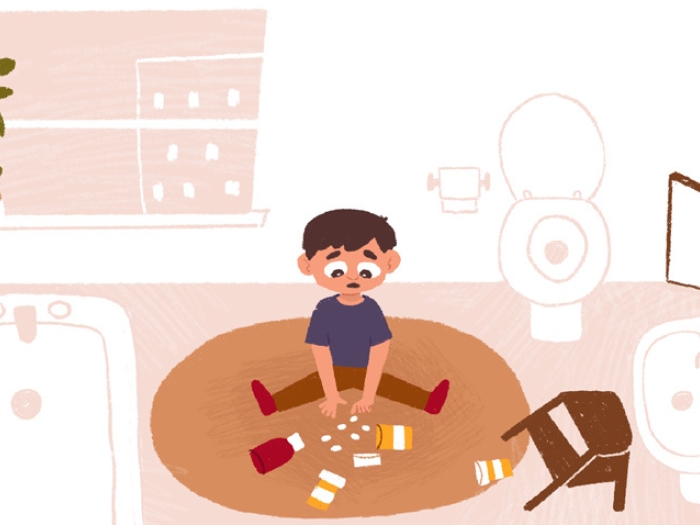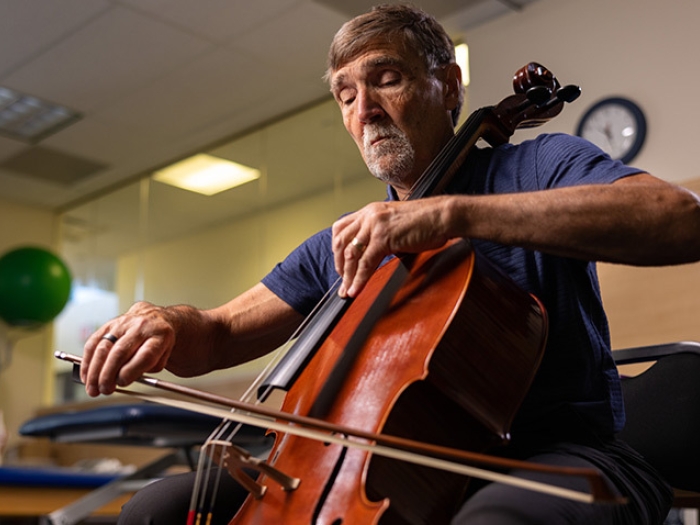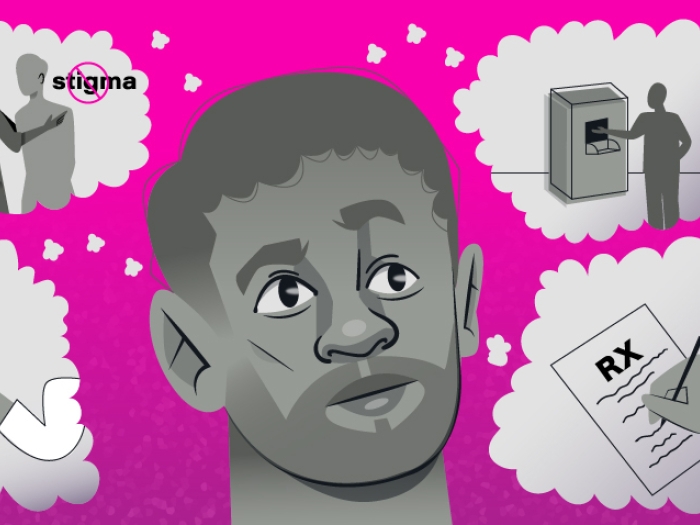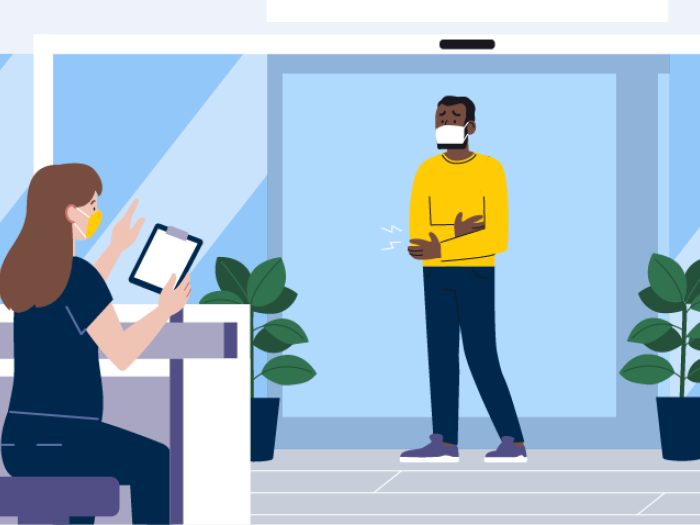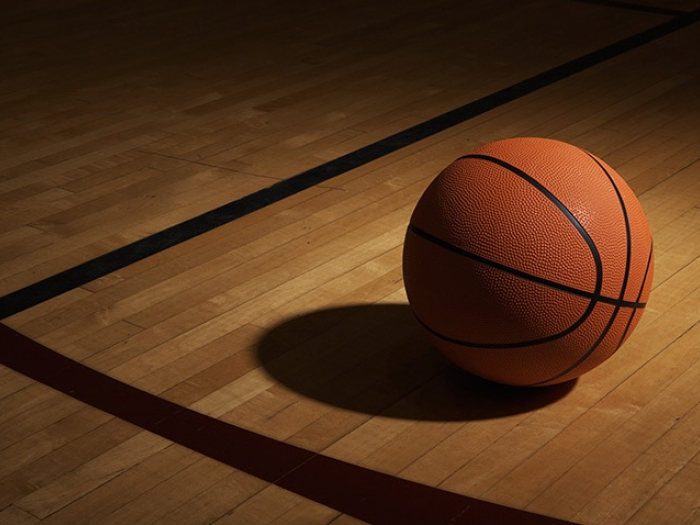Summer holidays and beautiful weather are coming. Use these pointers to keep your family safe all season long.
1:00 PM
Author |

This article was updated on July 1, 2022.
After so many people avoided getting together for recreational activities due to COVID-19, many are especially anxious to get back to outdoor recreation and fun.
As an emergency physician, I know that seasonal recreation can sometimes end with a trip to visit me in the emergency department.
More than ever, you may want to take advantage of some quick pointers to help you avoid spending any unnecessary time stuck indoors in the ED or caring for an avoidable injury, and more time enjoying the great outdoors:
1. Lather on the sunscreen and bug spray, and stay hydrated.
Long periods of sun exposure can lead to painful sunburns. In addition to the immediate pain, you are also increasing your risk of skin cancer. Use sunscreen, and wear clothing and hats that minimize your skin's sun exposure. Keep your family safe from bug bites by reapplying bug spray in accordance with the spray's directions.
Don't forget to stay hydrated, and help your body regulate its temperature by taking breaks and seeking the comfort of shade or air conditioning. Know the signs of heat-related illnesses, which can range from muscle cramps and fatigue to heat stroke, a serious condition marked by hot, dry or moist skin, a rapid pulse and/or confusion. Make sure to get medical help if your symptoms seem to worsen. And never leave children or pets locked in a hot car.
2. Be alert around water.
Safety around water is especially important for children because drowning can occur in only a few seconds. One of the best ways to keep your children safe is to teach them how to swim. Life jackets are also a good idea for young children in pools, lakes or any other body of water.
Never dive into shallow water or an unknown body of water. Hidden underwater obstructions can cause severe head or spinal cord injuries that could lead to paralysis, and even death, if jumping head first. When using pools and hot tubs, make sure the water's chlorine or bromine levels are correct, and that all drains are properly secured to help keep you and your family safe.
3. Pool safety.
This year, a shortage of pool chlorine threatens to dampen summer fun in backyards across the country. It is important to remember that chlorine is a critical part of keeping your pool clean and safe. A pool professional can provide information about whether alternatives to chlorine, such as bromine or purchasing and adding a salt water chlorine generator.
It is critical that you do not skip the important step of sanitation that chlorine can provide. Pools can become unsafe due to bacteria and other microorganisms that enter the pool with swimmers. Saving money by using less chlorine could put you and your family at risk for waterborne illnesses.
If you choose to stock up on chlorine, be sure to follow label instructions on how to safely store and use it. The US Centers for Disease Control and Prevention (CDC) has reported that over 4,500 emergency department visits occur annually in the country due to pool chemical related injuries. Improper storage that results in damaged containers or leaks could release dangerous chlorine gas. Spills can cause serious eye injuries, burns and respiratory problems. Be sure to use appropriate personal protective equipment, goggles, gloves and, potentially, even a respirator. Always use chemicals in a well-ventilated area in accordance with the label instructions.
4. Monitor grilling and barbequing.
Many people enjoy outdoor barbecues or picnics in the summer, but it's important to keep food at the proper temperature when outdoors. Keep cold foods generally below 40 degrees Fahrenheit to prevent growth of bacteria. Hot foods should be consumed quickly after cooking, so they do not cool to unsafe temperatures at which bacteria can grow.
If using an outdoor grill, be sure to check carefully for foreign materials getting in your food. Things you might not think of, such as bristles from a grill brush, can get stuck in your burger and be accidentally swallowed and cause injury.
5. Watch your family around campfires.
While campfires are another favorite summer pastime, the potential for burns, especially to unsupervised children, is high. Watch your children around open flames, and make sure they understand fire safety.
It's also important to be careful when starting your campfire. I have seen many burns as a result of individuals attempting to use an accelerant, such as gasoline, to get their fire burning more quickly. Take your time and use plenty of dry paper or kindling, or a commercially available fire starter, to ensure a safe start to your fire.
6. Exercise caution around fireworks.
While beautiful and fun to watch, malfunctioning or misused fireworks can cause significant injury or death. Ensure that you are following all of the instructions, and only purchase fireworks from a reputable source. Make sure the area where you are setting off the fireworks is clear of spectators and anything flammable. Have a fire extinguisher or bucket of water ready to put out small fires or to smother any "duds," and never attempt to relight a malfunctioning firework.
7. Stay up to date on severe weather.
Summer weather can sometimes be unpredictable. Floods, tornadoes and lightning are all threats that come with summer thunderstorms. Plan ahead. Have a weather radio, follow media reports or use an app on your phone to track the anticipated weather for that day. If severe weather is forecast, consider changing your plans. Be sure to seek shelter immediately in the event of lightning or a tornado warning. If you venture out, keep a close watch on the weather.
Summer is a beautiful time. With some planning, you and your family can enjoy the season and the summer holidays without injury. If we are needed, however, your local emergency department stands ever ready to assist you!

Explore a variety of health care news & stories by visiting the Health Lab home page for more articles.

Department of Communication at Michigan Medicine
Want top health & research news weekly? Sign up for Health Lab’s newsletters today!
